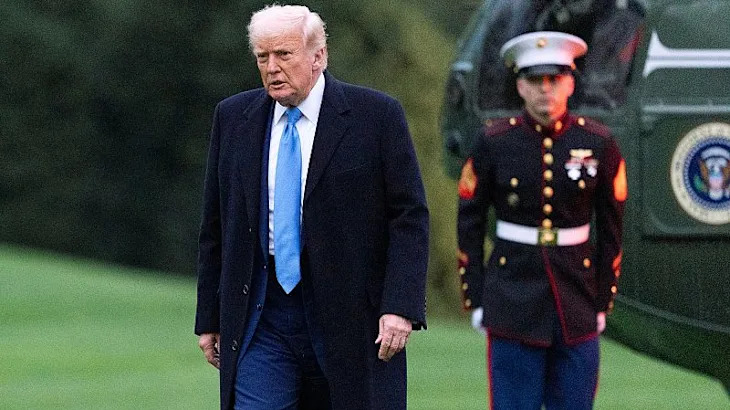
Trump denies causing market sell-offs but sticks to trade deficit goal
US President Donald Trump insisted he had not deliberately triggered the intense market sell-offs but reaffirmed his goal of eliminating the US trade deficit. Global equity markets have tumbled since Trump unveiled higher-than-expected reciprocal tariffs last week, wiping out trillions on Wall Street. On Friday, China responded with retaliatory tariffs, imposing 34% import levies on all US goods, marking a major escalation in the global trade war.
“I don’t want anything to go down, but sometimes you have to take medicine to fix something,” Trump said aboard Air Force One at the weekend. “We have to solve our trade deficit with China,” he continued. “We have a trillion-dollar trade deficit with China—hundreds of billions of dollars a year we lose. Unless we solve that problem, I’m not going to make a deal.”
Trump also demanded financial reparations from Europe: “We put a big tariff on Europe. They are coming to the table; they want to talk, but there’s no talk unless they pay us a lot of money on a yearly basis—not just for the present, but also for the past.”
Last week, the President said he was open to negotiations if other countries offer something “phenomenal”.
Related
Asian stock markets extend losses
Equities across Asia and US stock futures extended losses during Monday’s Asian session, as the escalating global trade war continued to pressure investor sentiment.
Hong Kong’s Hang Seng Index plunged nearly 10% at the open on the return from a public holiday last Friday, erasing all gains since February. Chinese equities had rallied strongly earlier in the year on the back of DeepSeek’s launch of a lower-cost AI model, coupled with Beijing’s pledge for further stimulus. The Hang Seng Index had risen 24% from the start of 2025 to a peak on 19 March, before Trump’s reciprocal tariff announcement. Following the steep sell-off, the index is now up just 3.2% year-to-date.
Japan’s benchmark Nikkei 225 dropped 6% to an 18-month low in early trade, triggering a circuit breaker. The index has now declined over 20% from its January highs, entering bear market territory. South Korea’s Kospi index shed more than 4%, while Australia’s ASX 200 also declined by nearly 4%. Although the three benchmarks later recovered some ground, they remained in negative territory intraday.
“There could be big rallies this week on positive headlines. But there won't be a sustainable move until Trump indicates he has no intention to raise tariffs further and is open to negotiating lower tariffs with trading partners… It's as simple as that, really,” said Kyle Rodda, senior market analyst at Capital.com.